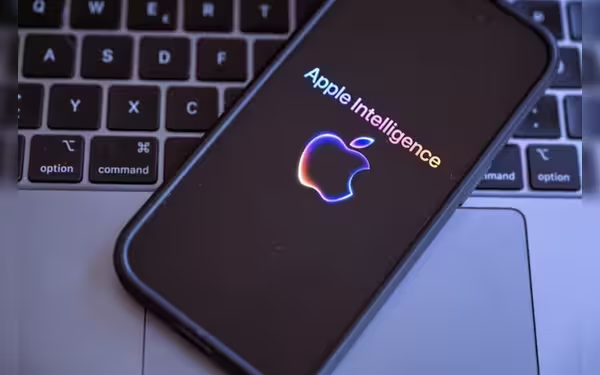Saturday, October 5, 2024 10:31 PM
AI Smartphone Revolution Faces Consumer Apathy
- Apple's new iPhone 16 fails to excite consumers.
- AI features overshadowed by a simple camera button.
- Tech industry seeks tangible AI benefits for users.
 Image Credits: asiatimes
Image Credits: asiatimesApple's iPhone 16 launch reveals consumer apathy towards AI, highlighting a need for tangible benefits.
In recent years, the world of technology has been buzzing with excitement over artificial intelligence (AI). Companies like Apple, Google, and Microsoft have been racing to integrate AI into their products, promising a revolution in how we interact with our devices. Last week, Apple unveiled its latest line of iPhones, highlighting AI as the centerpiece of their new offerings. However, the response from consumers and tech enthusiasts has been surprisingly lackluster.
When Apple announced its new iPhone 16, many expected a wave of excitement, especially with the introduction of what they branded as 'Apple Intelligence.' Yet, the reaction was far from enthusiastic. In fact, the muted response was so pronounced that it resulted in a staggering loss of over one hundred billion dollars in Apple’s share price. Even tech aficionados at the Wired Gadget Lab podcast, known for their enthusiasm for new technology, found little in the new features that would compel them to upgrade.
Interestingly, the most talked-about feature was not the AI capabilities but rather a simple addition: a new camera shutter button on the side of the phone. This raises a significant question: if a physical button garners more excitement than advanced AI technology, what does that say about the current state of AI?
According to tech blog The Media Copilot, AI has moved past its 'wonderment phase.' Just two years ago, innovations like ChatGPT and DALL-E amazed us with their ability to generate coherent text and realistic images from mere words. However, the novelty has worn off, and now consumers are looking for AI to demonstrate real productivity and usefulness in their daily lives.
Since the introduction of these AI models, they have become more powerful but also significantly more expensive. This has led to a critical juncture in the tech industry, where companies must prove that their AI innovations can deliver tangible benefits. Recently, major players in the AI field, including Google, NVidia, Microsoft, and OpenAI, convened at the White House to discuss the future of AI infrastructure, indicating a commitment to advancing this technology.
As we look ahead, it is clear that the AI smartphone revolution is not as straightforward as many had hoped. While the technology has immense potential, it must evolve beyond mere hype and demonstrate its ability to enhance our lives in practical ways. For consumers, this means being patient and discerning, as the true benefits of AI may take time to materialize. In the end, the success of AI in smartphones will depend on its ability to integrate seamlessly into our daily routines, making our lives easier and more efficient.













